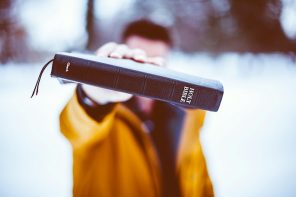While some religion scholars worry out loud about the impacts of Web 2.0 relationality on brick-and-mortar churches—a development Elizabeth Drescher handled here at RD—Mormons appear to be cleaning up in the world of digital religion.
One of the top-ranked trends on Twitter last weekend? It was #ldsconf: the hashtag for the Church’s semi-annual General Conference. When I was a kid, Conference was broadcast global by satellite. Now, we get it on-line, simulcast in dozens of languages from Apache to Arabic to Tongan. And thousands worldwide follow and run their own live commentaries on blogs and Twitter.
During last Sunday morning General Conference Session, LDS First Presidency member Dieter F. Uchtdorf openly advocated digital media use (especially by young Mormons) in the service of Mormon messaging. Uchtdorf set off a wave of appreciative texts and tweets when he wryly joked from the pulpit that he suspected someone was making ironic tweets about his talk at that very moment.
The Church has issued guidelines encouraging member use of social media. With a legion of volunteer-developed LDS apps blazing the AppStore, a YouTube channel that draws four times more traffic than the Vatican’s, and a Web 2.0 savvy institutional site—Mormon.org—driven by individually uploaded member-profiles, the LDS Church and its US membership is probably the most digitally networked religious group in the world. Why? Credit high rates of internet access among Mormons in the U.S., as well as longstanding cultural-religious-ethnic kinship networks among American Mormons that have served as a base for building web relationality. (Although digital media is showing potential not only for reflecting already existing Mormon social networks but for innovating new social networks among like-minded members at different points on the orthodoxy spectrum.)
I’ll be talking about digital media, Mormonism, and progressive politics this week at Clark University in Massachusetts, exploring the way that digital media has served not only institutional Mormonism but politically progressive and nontraditional Mormons (including Mormons who support LGBT equality) as well. More information about the event (open to the public) and the Clark University “Difficult Dialogues” series on “Religion and Compassion” is here. It would be great to see you there.




